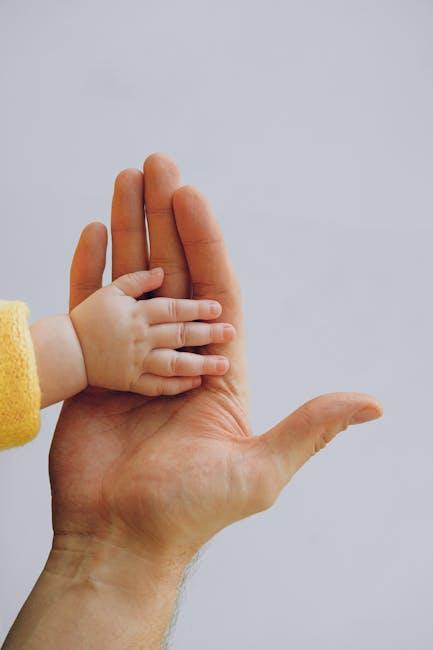In the intricate dance of human relationships, emotional connections often serve as the rhythm guiding our steps. They are the unseen threads weaving through the fabric of our interactions, pulling us closer with each shared laugh, whispered secret, and moment of vulnerability. Yet, as we traverse the landscape of love and companionship, a question emerges from the depths of our hearts: Do these emotional connections always lead to the long-term relationships we so often envision? In this exploration, we delve into the nature of emotional bonds, examining their role in the tapestry of human connection and questioning whether they are the ultimate key to enduring partnerships or merely one part of a more complex equation. Join us as we unravel the mystery of emotional ties and their true impact on the longevity of relationships.
Exploring the Depth of Emotional Bonds and Their Role in Relationship Longevity
Emotional bonds are the invisible threads that weave individuals together, creating a tapestry of shared experiences, mutual understanding, and profound empathy. These connections often serve as the bedrock of intimate relationships, fostering a sense of security and belonging. But do they always guarantee longevity? While an emotional connection can be a significant factor in the durability of a relationship, it is not the sole determinant. Several elements interplay to sustain a long-term partnership.
- Communication: Open and honest dialogue helps in navigating challenges and resolving conflicts.
- Shared Goals: Aligning life aspirations can strengthen the partnership.
- Trust and Respect: These are fundamental pillars that support emotional connections.
- Adaptability: The ability to grow and change together is crucial for enduring bonds.
Ultimately, while emotional connections are vital, they must be complemented by these additional factors to cultivate a lasting relationship.

The Science Behind Emotional Attachment: Predictors of Relationship Success
Understanding the intricate web of emotional attachment can illuminate why some relationships thrive while others falter. Emotional connections are often seen as the glue that holds relationships together, but they are not the sole predictors of long-term success. The science behind emotional attachment suggests that several factors interplay to determine the sustainability of a relationship. Key predictors include:
- Communication Skills: Effective communication fosters mutual understanding and trust, paving the way for resolving conflicts and aligning goals.
- Emotional Intelligence: The ability to recognize and manage one’s own emotions, as well as empathize with a partner, is crucial for navigating the complexities of a relationship.
- Shared Values and Interests: Couples who share core values and enjoy similar activities often find it easier to build a lasting partnership.
- Adaptability and Resilience: The capacity to adapt to changes and overcome challenges together strengthens the bond between partners.
While emotional attachment is undeniably important, the presence of these elements can greatly enhance the likelihood of a relationship enduring the test of time. By focusing on these predictors, couples can work towards a more resilient and fulfilling connection.
Navigating the Complexities of Emotional Intimacy in Modern Relationships
Emotional connections often feel like the bedrock of any meaningful relationship. They are the invisible threads that weave two people together, allowing them to share their deepest fears, hopes, and dreams. Yet, the notion that these connections always translate into long-term commitments is a romantic ideal that doesn’t always align with reality. In today’s fast-paced world, relationships are often influenced by a myriad of factors, including personal growth trajectories, career ambitions, and geographical shifts. Therefore, while an emotional bond can serve as a powerful foundation, it doesn’t necessarily guarantee longevity.
Consider the following nuances that can impact whether an emotional connection leads to a lasting relationship:
- Individual Goals: Partners may have differing life goals or timelines that make a long-term commitment challenging.
- Communication Styles: Effective communication is essential; misalignment here can strain even the strongest emotional ties.
- External Pressures: Family expectations, societal norms, or professional demands can influence relationship trajectories.
- Emotional Maturity: The ability to navigate emotional complexities often dictates whether a relationship can withstand time.
Ultimately, while emotional connections are invaluable, they are but one component in the intricate dance of sustaining a relationship over the long haul.

Practical Strategies for Fostering Lasting Emotional Connections
Building meaningful emotional connections requires intentional effort and mindfulness. One effective strategy is practicing active listening. This involves not only hearing the words being spoken but also understanding the emotions behind them. By giving your full attention and responding empathetically, you create a space where the other person feels truly heard and valued. Another powerful technique is engaging in shared activities that bring joy and laughter, which can create positive memories and strengthen bonds.
Additionally, expressing vulnerability can deepen emotional ties. When you share your fears, dreams, and insecurities, it invites the other person to do the same, fostering a sense of trust and intimacy. Consider these approaches to nurture lasting emotional connections:
- Practice regular and open communication
- Show appreciation and gratitude frequently
- Be present and mindful during interactions
By integrating these strategies into your interactions, you can cultivate connections that are both meaningful and enduring, regardless of the relationship’s ultimate path.








